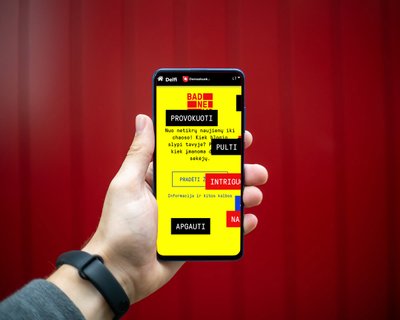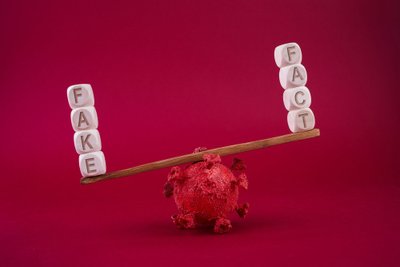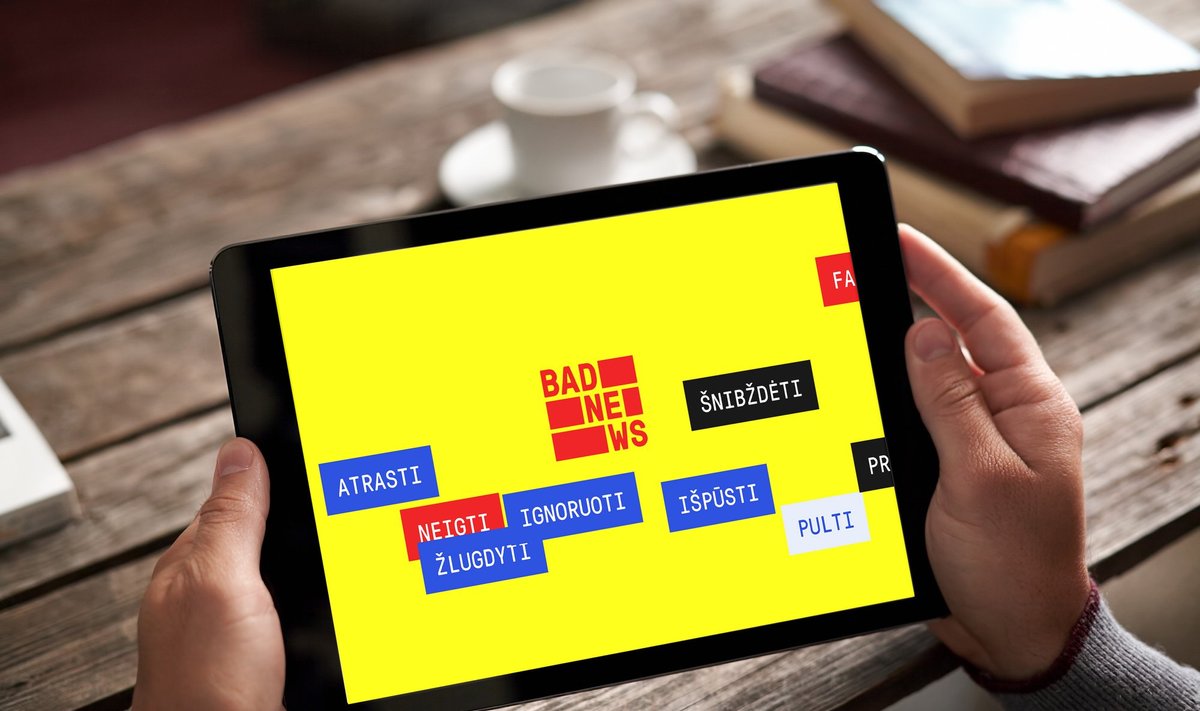The pandemic revealed various problematic issues, while also opening the Pandora’s box of fake news on social networks. These sites of dynamic, readily available information offer a great medium for the spreading of lies.
Why does fake news spread so quickly?
“Truth is wise; therefore, it is slow. It calls for deliberation. For this reason, a lie will always be one step ahead on public platforms. The only way to escape the field of lies is to train yourself to recognise the truth. Although it cannot be faster, the truth can at least reach people in more creative ways. “Various techniques are used to spread lies, and these are constantly improving. For example, there is a sense of yourself being with others, or against others – in other words, an opposition is created where it should not exist. If this game is played in relation to sensitive topics, there is a risk that an alternative view of reality will manifest itself in very specific decisions, which can do a lot of damage in a person’s real life. As one example, we can see this situation occurring in the active movement against vaccinations,” Ms Meidutė noted.
It is easy to see that many items of fake news items are global in scale. Often, before they spread to Lithuania, the same lies have travelled around other continents and in many other contexts, where they have already caused damage.
“It is no secret that the current health crisis has also become an information crisis, with an increase in the flow of fake news about pandemic prevention measures.

“For example, as the vaccine developers start to approach the finish line in creating a vaccine against the novel coronavirus, we will likely notice an increase in the activities of the anti-vaxxers. Since all health-related issues are very sensitive, a person will always be more receptive, more emotional, and more easily influenced by this form of disinformation, because the answers to health questions are usually the responsibility of experts in this field.
“Many consumers of information have little understanding of their own health, so the false prophets can rapidly have an impact – they can change beliefs and shape harmful behaviour patterns. All of this eventually leads to self-destructive behaviour, or worse still, a person starts to believe the lies and spreads them to others,” the Editor of DELFI Lie Detector explained, calling for a more critical approach to the information we receive.
No one is immune to the effects of fake news
According to Ms Meidutė, fake news has a very wide audience, so it is difficult to say which people are more prone to its influence.
“We tend to believe that fake news has a greater impact on those who lack life experience or are less educated; however, this only occurs in the initial stage.
“In the age of technology, fake news has greatly improved, taken on new forms, and of course, it has an impact on an increasing number of people. The most important thing is to stop dividing people into two camps – those who believe in lies and those who do not – because that is the purpose of any type of propaganda. It divides us and creates a sea of mistrust,” noted the media representative.
According to Ms Meidutė, no one is immune from the effects of fake news, and the events of recent months have made this more obvious than ever before. No matter how educated a person is, how extensive their life experience and their social status, the creators of fake news and the masters of conspiracy theories know the weaknesses of the public multitude. That is why the most important step is to improve critical thinking ability, maintain common sense and become aware that emotional content is not necessarily true. On the contrary, the propagandists typically like to play with our emotions.
In the opinion of the expert, the only way to help people learn to recognise lies and increase their resilience to fake news is through education and by developing critical thinking, through trying methods that are as diverse and original as possible.

One of these methods is the Get Bad News game.
The Get Bad News game, introduced by Demaskuok.lt, gives you the chance to get acquainted with six of the most commonly used disinformation techniques: pretending to be another person, emotion, opposition, conspiracy theories, discrediting and trolling.
This game is unusual in the sense that the player is not a hero – instead, the action takes place from the troll’s point of view. As a result, the player has to make a lot of unethical decisions to increase his or her popularity and increase the number of followers. The results of a Cambridge study have shown that introducing people to these techniques makes it easier for them to recognise false information. After playing the game for just fifteen minutes, a player’s trust in the disinformation was reduced by 21%, making it easier for them to distinguish between real and fake news.
According to the Editor of DELFI Lie Detector, the truth can only overcome a lie by being flexible, which means that creative and attractive solutions are needed to encourage people to take an interest in the true story and not give in to provocations.
“The point of the Get Bad News game is you get to become a provocateur, so that you can then recognise when you are being provoked and lied to. It is an ingenious manifestation of the truth that can be readily figured out,” Ms Meidutė said. The Get Bad News is available in Lithuania, Latvia and Estonia.
You can try out the game here.
Don’t expect a quick result
Of course, there is always another side to the coin. It is very difficult to assess the effectiveness of the measures to disclose disinformation. “Often, in an attempt to reveal the truth, these is an unpleasant clash – people who believe in the lies actively oppose the truth and incite hatred. This is due to their existence in that alternative reality created by the propaganda.
“What is the most effective solution in this case? You should continue to talk about the truth, even if it seems such talk is getting you nowhere. The next step is to look for new ways of disclosing the truth, in a way that will make others listen. Working to reveal the lies in propaganda requires patience and time, so there are no easy gains,” the Editor of Delfi Lie Detector explained.
The biggest challenge for her in this job has been learning not to expect a quick result. When you are explaining the truth, you are also inevitably talking about the untruth, which means that you are trying to explain why other people were wrong.
“No one likes to be wrong, so there will always be certain individuals who try to make fun of you and look for your weaknesses. It is like you are under a microscope. However, all of this is made worthwhile by knowing that education and the search for truth are part of a long but sustainable process.

“I am grateful that those working around the world with propaganda content are gathering their fact-finding together in larger communities, and are sharing their knowledge and tools, but there is always room for improvement.
“Two years ago, together with journalists from Latvia and Estonia, I went to the United States, where we travelled to different states, meeting with media representatives and people who were working on research by searching publicly available sources.
“It was interesting to see how another continent is battling fake news and learn which news sources the people living there trust the most, and to look for common ground. I also participated in training on critical thinking in Slovakia and Brussels. This year, as the world is on a break from travelling, I have been taking part in online training, where the professionals in their fields are sharing knowledge about the subtleties of search engines and teaching us about faster and more efficient ways of finding information. We are learning from each other. In this job, that is very rewarding,” Ms Meidutė said, talking about the constant need for improvement in the field of disclosing lies.
